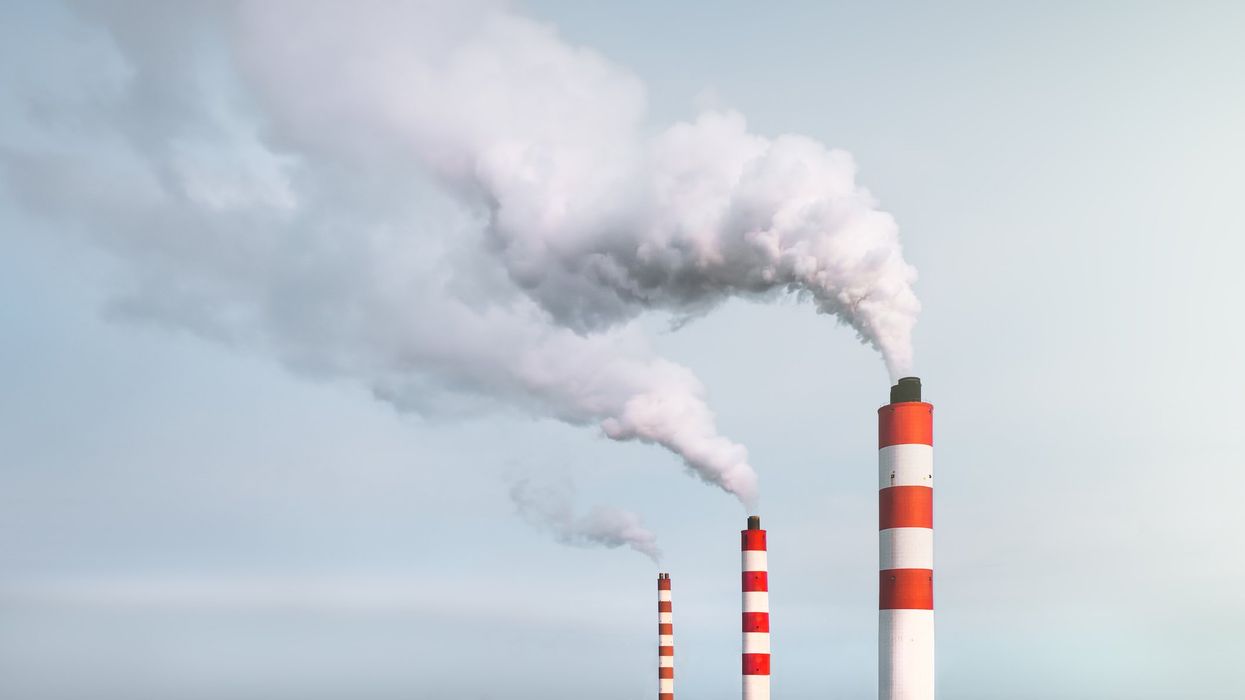The Fulcrum introduces Congress Bill Spotlight, a weekly report by Jesse Rifkin, focusing on the noteworthy legislation of the thousands introduced in Congress. Rifkin has written about Congress for years, and now he's dissecting the most interesting bills you need to know about, but that often don't get the right news coverage.
President Donald Trump has labeled everyone from Hillary Clinton to Jeb Bush as “low energy,” but what about his executive order on the subject?
The Bill
A new bill would repeal Trump’s executive order that declared a “national energy emergency,” which was crafted to primarily (or, perhaps, even exclusively) benefit fossil fuels like coal and oil.
The Senate joint resolution was introduced on February 3 by Sen. Tim Kaine (D-VA). The bill does not appear to have a title. No House companion version appears to have been introduced yet.
Context
The president has authority to declare a national emergency without congressional approval, which gives the president many increased powers. In theory, these emergencies are supposed to primarily be events like natural disasters, national security threats, or health crises, such as the COVID emergency in effect from March 2020 to April 2023.
Trump declared three national emergencies on his first day back in office: two about the U.S.-Mexico border, plus another about energy.
While Democrats disagree with most Trump border policies, many nonetheless acknowledge the current border situation indeed constitutes an “emergency.” Democrats say America’s energy situation is different, though. America’s current energy situation is not an “emergency” at all, they argue, but rather doing quite well.
- Domestic sources: U.S. energy production reached a record high in 2023, and has actually exceeded U.S. energy consumption every year since 2019.
- Healthier: Renewables such as wind and solar are going up, while coal is going down.
- Economics: Average gas prices are currently lower than a year ago and -37% below their all-time high, set in June 2022, amid high inflation and shortly after Russia invaded Ukraine.
Trump’s executive order allows suspensions of certain environmental considerations that are usually taken into account under the Endangered Species Act, plus faster federal approvals on certain energy projects.
Not for all energy projects, though. The executive order specifies several different types of energy including coal, oil, petroleum, and natural gas —but intentionally left out certain renewables like wind and solar.
What Supporters Say
Supporters argue the human-caused climate crisis is real, causing increasingly damaging natural disasters like Hurricane Helene in North Carolina and January’s California wildfires. They say lessening reliance on coal, oil, and natural gas is the best way to ameliorate such threats.
“The United States is producing more energy than at any other point in history,” Sen. Kaine said in a press release. “So why would Donald Trump spend his first day in office declaring a national energy emergency? … Because Trump will do anything for Big Oil. This sham emergency [is] nothing more than a shameless power grab to suspend environmental regulations and make it easier for massive fossil fuel corporations.”
What Opponents Say
Opponents counter that more energy is still needed for three main reasons:
A backstop against grid failures. For example, Texas experienced a February 2021 energy grid failure, losing power for millions of residents during an extreme winter storm. “The integrity… of our nation’s energy infrastructure, from coast to coast, is an immediate and pressing priority,” Trump’s executive order said.
Guarding against hacks or blackmail. For example, hackers in May 2021 seized control of Colonial Pipeline’s infrastructure and demanded $4.4 million in cryptocurrency. (The CEO agreed to pay the ransom, though the FBI later seized about half of the money back from the hackers.) “In an effort to harm the American people, hostile state and non-state foreign actors have targeted our domestic energy infrastructure,” Trump’s executive order said.
Accommodating growing new technologies. Artificial intelligence is such an energy-intensive service that its use is already straining many electric grids, a problem only expected to surge in the coming years. “The United States’ ability to remain at the forefront of technological innovation depends on a reliable supply of energy,” Trump’s executive order said.
Odds of Passage
The bill has attracted 11 cosponsors, all Democrats. It awaits a potential but unlikely vote in the Senate Energy and Natural Resources Committee, controlled by Republicans.
Jesse Rifkin is a freelance journalist with the Fulcrum. Don’t miss his weekly report, Congress Bill Spotlight, every Friday on the Fulcrum. Rifkin’s writings about politics and Congress have been published in the Washington Post, Politico, Roll Call, Los Angeles Times, CNN Opinion, GovTrack, and USA Today.
SUGGESTIONS:
Congress Bill Spotlight: Panama Canal Repurchase Act
Congress Bill Spotlight: Make Greenland Great Again Act
Congress Bill Spotlight: BIG OIL from the Cabinet Act
Congress Bill Spotlight: renaming Gulf of Mexico as “Gulf of America”
Congress Bill Spotlight: constitutional amendment letting Trump be elected to a third term
Congress Bill Spotlight: adding Donald Trump’s face to Mount Rushmore




















Trump & Hegseth gave Mark Kelly a huge 2028 gift